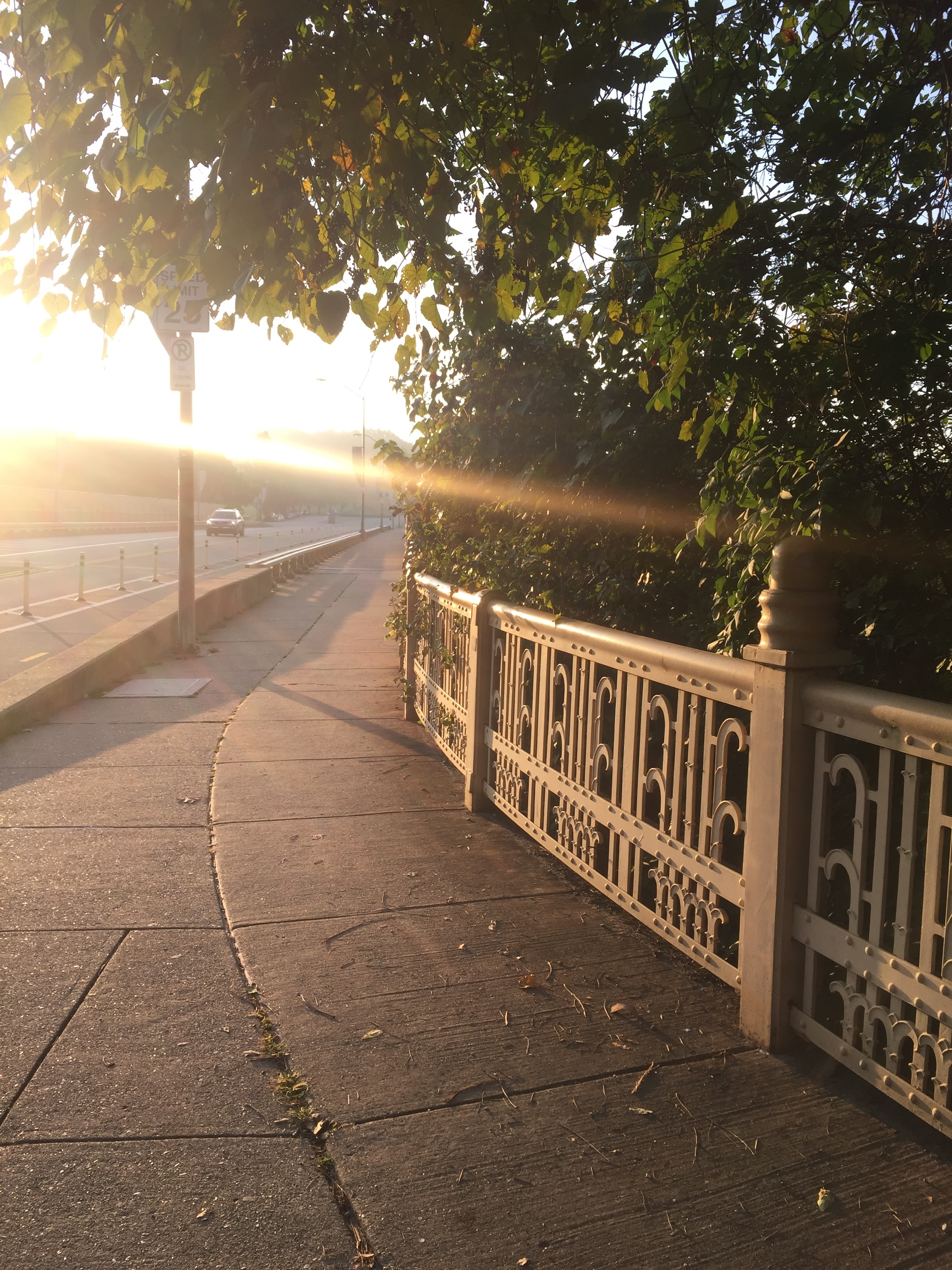pittsburgh, pennsylvania
Biophilic Cities Partner City Since 2016
“When we first heard about the biophilic cities movement, we said ‘This is a natural for Pittsburgh. Pittsburgh is already a great natural place to be.’ With the mayor’s vision of what he wants the city to become…we are really excited that the city has taken this initiative.” - Richard V. Piacentini, Executive Director of Phipps
Pittsburgh has long been known for its steel production, and today some of that rich industrial history is being repurposed into new forms of urban nature. The city has constructed riverfront trails and green space, including the new South Shore Riverfront Park, and is re-energizing former industrial spaces with all manner of innovative uses, among them gardening, farming and art installations. From reimagining its industrial past to becoming the newest member of the Biophilic Cities Network, Pittsburgh is connecting residents with nature in unique ways. The city’s main biophilic endeavors have focused on improving both water and air quality while also increasing residents’ engagement with the natural world. Their strategy focuses on creating partnerships to enhance the city’s biodiversity, increase tree canopy, install green infrastructure, daylight streams, plan for EcoInnovation Districts, and work with the Urban Sustainability Directors Network to develop a biodiversity framework tool. Other initiative include replacing city streetlights to reduce light pollution and enhance the night sky, as well as increasing ecological literacy. Pittsburg also features many green buildings, such as the Frick Environmental Center, the David L. Lawrence Convention Center, and the Phipps Conservatory’s Center for Sustainable Landscapes.
As a member of the Biophilic Cities Network, Pittsburgh plans to measure success through tree canopy coverage change over time, extent of biodiversity, participation in monthly Biophilia Meetups, percent of city budget devoted to nature conservation, restoration, and education among other indicators. At Pittsburgh’s induction into the global Biophilic Cities Network on September 16, 2016, Mayor Bill Peduto emphasized, “Being part of the Biophilic Cities Network will help us realize the goals in our own 2030 plan. It will help us to coordinate the efforts of all of the great organizations that work in the City of Pittsburgh on a daily basis…It will do what David Lawrence set out to do in the 1940s, which was to make Pittsburgh a shining example of how a post industrial city can take care of its air, water, but most importantly take care of its people.”
Pittsburgh Biophilic Cities Initiative
City Contact: Rebecca Kiernan, Senior Resilience Coordinator
partner & PROJECT SPOTLIGHTS
Phipps Conservatory and Botanical Gardens is a green oasis in the middle of Pittsburgh’s vibrant Oakland neighborhood. Center for Sustainable Landscapes is an educational center at the Phipps Conservatory constructed on a former brownfields site to demonstrate the highest green building practices. The building generates all needed energy and treats all sanitary and storm water onsite. It is the first and only building to meet four of the highest green certifications: the Living Building Challenge, LEED Platinum, WELL Building Platinum, and Four-Stars Sustainable SITES.
Pittsburgh Parks Conservancy works to improve the quality of life for the people of Pittsburgh by restoring the park system to excellence in partnership with government and the community. Projects and programs are conducted with respect for the environment, historic design, and the needs of our diverse region. With training and support from the Parks Conservancy and additional partner organizations throughout Pittsburgh, Urban EcoStewards adopt and care for park sites and in their communities by removing invasive plants, caring for trees, clearing trash, and much more. A project of the Pittsburgh Parks Conservancy and the City of Pittsburgh, the Frick Environmental Center is a certified Living Building that has achieved Leadership in Energy and Environmental Design (LEED) Platinum. Click here to learn more about the building.
Tree Pittsburgh is an environmental non-profit organization dedicated to enhancing the City’s vitality by restoring and protecting the urban forest through tree maintenance, planting, education and advocacy.
Bike Pittsburgh: With a focus on Advocacy, Education, and Community, Bike Pittsburgh is transforming Pittsburgh streets and communities into vibrant, healthy places by making them safe and accessible for people to bike and walk.
Venture Outdoors promotes outdoor recreation in Southwestern Pennsylvania. They believe everyone deserves the chance to experience how incredibly fun the outdoors can be, so they provide the gear, guidance and inspiration to make outdoor recreation part of people’s lives.
South Shore Riverfront Park: steel mill barge dock converted to riverfront park with plazas, upper and lower river trails for bikes and pedestrians, event stage, connection to Great Allegheny Passage and Three Rivers Heritage Trail.
Shade Tree Commission: non-profit organization affiliated with the Mayor’s Office that advises and informs government, private sector, and public about urban tree policies. The commission funds urban forestry projects through the Shade Tree Trust Fund.
Open Space, Parks, and Recreation Plan: directs work on trails system, vacant land use, and natural areas
LOCAL NEWS
OPEN SPACE INITIATIVES: THE PITTSBURGH GREENWAY PROGRAM
The Greenways for Pittsburgh program was initiated in 1980 by the city's Department of City Planning. Since then, Pittsburgh has renewed the greenways project, revitalizing current greenways and creating new ones for the Pittsburgh community. Currently, there are 12 greenways in Pittsburgh, making up 605 total acres of open space in varying locations throughout the city.






















